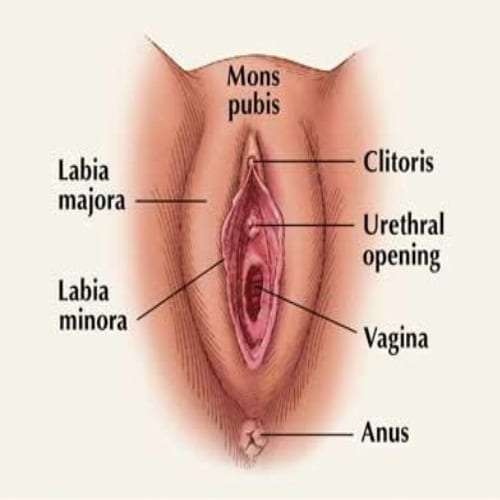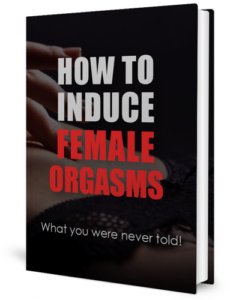We gathered a group of Brazilian specialists to give you special advice on how to have orgasms!
Some are part of the Sexosemduvida.com team and others are guest contributors.
Take advantage of the following valuable tips.
Orgasm tips by specialists
Ana Luiza Garcia
Is a Psychologist and Sexual Therapist who specializes in Human Sexuality. She has a degree in Psychology from (PUC / PR) and Sexology from the University of São Paulo (USP). She has been working with adolescents and adults in a clinic for 15 years, working with individuals, couples or families, all with the most varied demands. She is in love with the human soul and its natural plurality.
As a practicing Psychologist, while studying and assisting my clients, I have come to the realization that their ability to have orgasms is directly correlated to the individual’s liberation, permission, acceptance, self-awareness, practice, relaxation and surrender.
- Freeing your desires, fantasies and instincts. Allow one to feel pleasure, to move the body, emit noises, and be true to oneself without worrying about what people think.
- Acceptance with your own biotype, small physical imperfections and any other thing that makes us judge ourselves unnecessarily.
- Self-knowledge in order to understand what you enjoy and do not enjoy in a sexual encounter, surrender to your desires while respecting your limits.
- Practice so that you will realize that even to reach orgasm, you need to practice, you need to masturbate, and explore your body and discover your sexual individuality.
- Relax in order feel pleasure and liberate yourself from worry regarding performance or any other issue.
And finally, true surrender depends on all the points I have just mentioned, the sum of all of them culminates in surrender, and surrender allows for full orgasms!
Carolina Freitas
Master’s in Psychology, Psychologist, Psycho-pedagogue, Sexologist, And Sexual Education Specialist. Has a degree in Sexual Therapy from the Sexology Center of Brasília CESEX, and is an Associate Member of the Brazilian Society of Studies in Human Sexuality SBRASH.
The best way to have an orgasm is not to think of it as an obligation, but as a consequence of being extremely turned on due to your involvement with your partner.
So, let yourself get carried away, and just enjoy your body and that of your partner.
Do you know what can make it easier for you to have an orgasm?
- Knowing your body – the more you know about your body’s response to stimuli and the sensations it brings you, the more comfortable you will be in a sexual encounter. Self- stimulation (masturbation) is a great learning tool.
- Pick a location that is pleasant and private – being in an environment that leaves you at ease will allow you to surrender more easily.
- Sexual Fantasies – thinking about sex increases your sexual creativity as well as your desire.
- Be open to new sensations – free yourself from sexual myths and prejudices. If problems arise a specialist in human sexology can help you.
- Focus on the entire body – Do not simply fixate on the genitals. Your entire body is a pleasure zone. Discover it!
Gabriela Daltro
Has a degree in Psychology from PUC-SP, and Human Sexuality (Faculty of Medicine, University of São Paulo – FMUSP). With a major in Gerontology by PUC-SP. She also is a Specialist in Clinical Neuropsychology (HC-FMUSP). Qualified in Couple Therapy (CEAP Cycle) and attending Extension in Negative Outcomes Resulting from Sexual Behavior (HC-FMUSP). Has a degree in Intimacy and Sexuality for Couples from the Relational Life Institute – United States).
1) Did you know that orgasms are a learned behavior?
That is right! Reproduction is instinctive, while orgasms are something you can only have if you learn how. Therefore, all you have to do is to learn!
And in order to do so, you will need clear and correct information on sexuality and about your own body.
Once you know how your body works, all you have to do afterwards is to train (That’s right. Lots of masturbation).
2) Did you know that the clitoris is a large muscle that is located behind the vulva and even involves the vaginal walls?
That small bump you have above your urethra is just the tip.
Therefore, there is no difference between a vaginal orgasm and a clitoral orgasm, as they are one and the same: all orgasms are achieved through clitoral stimulation!
Some women can only stimulate the clitoris through vaginal penetration, but around 75% to 80% of women need direct clitoral stimulation, some alongside vaginal penetration.
We can therefore conclude that, there is no “right” way to feel pleasure: There is only YOUR way.
Read also:
3) Your body needs preparation in order to have an orgasm: your internal organs, vagina and clitoris need to be engorged with blood in order to become more sensitive to touch.
This usually takes around 20 minutes to happen, that is, if excitement does not diminish or if the woman does not get distracted.
So, there has to be constant caressing, stimulating the body, vagina and clitoris, and most importantly, the mind in order to have an orgasm.
It is the brain that commands the body in all things pleasure related. So, fantasize, reignite old pleasurable memories, and focus on what is happening at the time and on the pleasant sensations coursing through your body.
Keep in mind that all this takes practice, so do not be discouraged if you are unsuccessful in having an orgasm the first few times. Keep at it and do not give up!
4) One of the biggest obstacles to having orgasms is the Sex Education we (do or do not) get.
Rigid concepts on female sexuality and what “womanhood means” can make it difficult for you to feel any pleasure.
Reflect on your beliefs, on what they consider to be acceptable sexual behavior, if they allow you to feel pleasure in sex, and how sexuality interacts with what they consider to be the role of the mother, the wife, etc.
It is the brain that recognizes sexual stimuli and awakens the body to pleasure, releasing a series of hormones that help you have an orgasm.
If there are any blocks caused by your beliefs or emotions, blocks to anything related to pleasure, the body will not be able to respond appropriately, thus blocking pleasure.
That is why working on your mind is important too.
Marlon Mattedi
Is a Psychologist and Sexual Therapist with a Postgraduate degree in Sexual Therapy from the Brazilian Institute of Sexology and Psychosomatic Medicine of São Paulo (ISEXP / SP) and from the Faculty of Medicine of ABC-São Paulo / SP. Specialist in Sexuality from the Brazilian Society of Studies in Human Sexuality (SBRASH); Specialist in Sexual Counseling and Couple’s Therapy from the SEXPOL Foundation of Madrid-Spain – Institute linked to the European Society (FES) and the World Association for Sexual Health (WAS). He was Secretary General of the Brazilian Society of Studies in Human Sexuality (SBRASH) from 2016 to 2017 and co-founded the site Sexosemduvida.com.
When we decide to take a trip somewhere, when does this trip begin?
The trip does not start the moment we enter the car, bus or plane. It starts when we feel the need to travel and begin the planning phase. It is at this moment that part of the trip truly begins.
Orgasms are the same thing. They do not start once we start having sex. They start long before that. They start when we begin to plan to have sex.
- How many minutes a day do you spend thinking about sex, or fantasizing about good sex?
- How much time to you dedicate to knowing your body, looking at yourself in the mirror, desiring yourself, touching yourself everywhere including your genitals?
- How much time do you spend reading erotic stories, watching an erotic film or thinking about an erotic scene, and using those to self stimulate yourself sexually?
Orgasms are easier to have when we are highly aroused. And one must exercise both mentally and physically, before we can even dream about having them…
Those who cannot come on their own will have trouble coming with other people.
So, orgasms are only possible when we stimulate ourselves physically while fantasizing about erotic scenes and thoughts, we need to eroticize ourselves first.
If we put all those things together, orgasms are more easily achieved, but keep in mind: orgasms first start with you, then with someone else.
Those who cannot come on their own will have trouble coming with other people.
Do you want to improve the quality of your orgasms? Start putting some time aside for yourself, in order to enjoy, stimulate and surrender to the pleasure you give yourself, then, one day, invite someone to join you.
Dr. Marlon Mattedi is the renowned author of the e-book How to Induce Female Orgasms.
Buy on Amazon.com: Female Orgasms – What you were never told | E-book by Marlon Mattedi, brazilian sexologist.
Bianca Fernandes Herbe
Pelvic Physiotherapist Sexologist. CREFITO-7 190.813-F. Is specialized in Urinogynocology and has a degree in Clinical Social Sexology. She is a member of the Brazilian Association of Pelvic Physiotherapy (ABFP) nº 0241, has a private practice and teaches in universities and post-graduate Physiotherapy courses. She also holds workshops and lectures on health and sexuality.
Hello. Today I want to share some tips in order to guarantee you more intense orgasms.
- Firstly: Get to know your body! Explore every inch of it, alone at first, so you will be able to communicate better to your partner what you want them to do .
- Allow yourself everything; do not get hung up on taboos fears or shame! Seek help from a professional in the area, so they may clear up any doubts you might have.
- Do not think only about the orgasm, but rather, enjoy every moment of the relationship, that way you will increase your pleasure and orgasms will occur naturally.
- This following tip is very cool: strengthen the perineal muscles! That’s right! Have you heard of sexual exercises, perineal exercises, kegel exercises, among others?
So, the professional that can assist you is the pelvic physiotherapist, who after a quick evaluation will recommend the best exercises for you.
Properly toned and strengthened perineal muscles will provide more intense orgasms to both men and women, besides enhancing pleasure, lubrication and erections.
I hope I have been helpful!
Marcos Santos
Is a Psychologist and Sexual Therapist, and a Specialist in Human Sexuality.
The first journey in search of the orgasm is a private affair of self-discovery.
Masturbate physically and mentally, in front of a mirror every day.
Self eroticism is an exercise that will liberate you and improve your self-esteem, and will lend you and your partner moments of orgasmic bliss.
Know yourself and use that to help you come.
Read also: How can you tell if a woman’s had an orgasm?
Mônica Santos Lopes
Is a Urogynecological physiotherapist. Member of the Brazilian Association of Physiotherapy in Women’s Health (ABRAFISM).
Discover yourself, touch yourself. Discover your erogenous zones.
Fantasize; and above all, maintain an open dialogue with your partner.
Orgasms can be reached through sexual maturity and on how close we are and how free we are with our partners.
Avoid labels! Everything has its time!
Alethéa Rorato
Psychologist, and specialist in Human Sexuality from Impasex, specialist in Substance Abuse from Unifesp/São Paulo, Brazil.
We all deserve and have the capacity to feel an orgasm; it is an “energetic discharge” of pleasure.
Knowing your body and choosing when you want to feel this pleasure is easier than it sounds.
Start your self-discovery with touches, reading erotic stories, watching movies that stimulate your desire…
As your self-knowledge improves, so will your sexual encounters and the quality of your orgasm.
Enylda Motta
Is a Psychologist, and family and couple’s therapist and Specialist in Human Sexuality at FMUSP.
Use self-stimulation, touching yourself in the shower, feeling every part of your body and noticing how it feels.
Discover each erogenous zone. Caresses and massage your body, without touching your genital area.
When you start to masturbate, take your time to relish every moment, without hurrying. By exploring your body, you will discover the most pleasurable points.
Living as a couple is another valid way of discovering pleasure. Foreplay is also very important.
Tatiana Leite
Is a Clinical psychologist, sexual therapist, couples therapist with a degree in Human Sexuality from FMUSP. She treats individuals and couples using psychotherapy as well as sexual therapy.
My tip is: Do not be afraid! START to touch yourself, look at yourself and most importantly learn to like yourself, self-knowledge and self-esteem is the most important factor to reach pleasure and achieve the desired orgasm.
At first, I suggest you take the time to get to know your body, to understand how it responds and what excites you. Then, start your workout on how to achieve the peak of excitement culminating in an orgasm.
… keep your mind focused on erotic thoughts, let your imagination run wild and have fun!
Set aside a day of the week when you can spend extra time in the shower…
Prepare the environment, relax, play music if you want, use bath salts, create a safe, cozy environment for this sensory experience. Start by touching yourself slowly and then increase pressure, explore other erogenous zones, breasts, thighs …
It is important that there is no interruption, and most importantly, keep your mind on erotic thoughts, without limitation: let your imagination run wild and have fun!
See also:
Carmen Janssen
Qualified Psychoanalyst, Pedagogue, Sexual Educator from the Brazilian Institute of Sexology and Psychosomatic Medicine / ABC Medical School and SBRASH, qualified Specialist in Sexuality from the Brazilian Society of Studies in Human Sexuality (SBRASH). Specialist in Sexual Therapy for Female Sexual Disorders from the Center of Psychology and Sexology of Barranquilla / Colombia. Is an author of several books on sexuality for couples, International Lecturer. Sexologist of the Versatile and Current Program of Rede Família de Televisão, Idealizer and Presenter of the Woman Radio Program of Body and Soul, in Radio Capela FM, 105.9.
When it comes to sex, the orgasm is the pinnacle of pleasure the human body and mind can experience.
I am glad to be part of this project, that has the goal of helping women who have difficulties having orgasm, and wants to help them fulfill the dream of achieving total sexual bliss.
In my book “Sexual Intelligence – affection, pleasure and sexuality as a couple” (Only in Portuguese), I wrote a chapter dedicated entirely to the female orgasm, entitled “Orgasm: the paths to the answer to female sexuality” and in it I bring forward some advice to women who suffer from anorgasmia.
On the orgasm or lack thereof
Women, who have difficulties achieving orgasm, relate different stories from each other.
Throughout my practice, there are those who complain about only achieving orgasm with great difficulty, if at all. Some of them are not even sure if they have ever experienced an orgasm.
There are also those, who complain about going their whole lives without ever experiencing an orgasm, I have divided this second group into two categories:
- Those who feel sexual attraction, get turned on yet fail to come
- Those who feel zero desire even when they are being stimulated by a partner
The most common factor in all these cases is that women have no idea what are the conditions and stimuli that are needed to reach that objective.
Shame and guilt, mostly linked to religious beliefs or a repressive education, are the feelings that mostly have a negative impact on these women’s sex lives.
Orgasm is something we learn
If you find yourself in one of these groups, the good news is that an orgasm is something that can be learned.
However, I need to first mention a fourth group. Those women who have had orgasms in the past, but now complain of not having experienced them for some time.
Due to these reasons, clinical treatment needs to be personalized on a case to case basis.
To those women who are having difficulties in achieving orgasm, one must point out the importance of preparing the body to receive these sensations through the five senses.
One must also prepare the mind, feel deserving, seek to look past taboos and prejudices, and allow oneself to feel.
This is not something that happens overnight. It is a process.
I hope that the tips and reflections I have extracted from my book may help you (re)discover yourself sexually. So, let’s go over them?
Pay attention however! It is not enough to simply do the execrises below once. After all, you want to want to (re)learn how to have an orgasm, right?
6 tips for you to achieve orgasm
Remember that having an orgasm is completely on you. So let us begin working on your sexual growth!
Did you know that sexual, physical and mental stimuli send signals from the brain to the body in order to get it ready to experience an orgasm?
1) First, a question: How much of what you know about sex today has been beneficial or detrimental to your sex life recently?
How?
It is important to answer this question honestly, as inadequate information tends to get in the way, far more than benefit, a woman’s sex life.
If you were taught to think about sex as being something dirty or ugly, then, chances are, you have probably developed feelings of guilt in relation to sex and even shame in sharing with your partner what you really want.
Negative feelings towards sex send an alert message to the brain. When this happens, your mind will not allow you to let loose and deny yourself the pleasure of masturbation or sexual encounters.
That is why it is crucial that you learn to demystify sexuality with accurate information.
Maybe you are asking yourself: “But, how do I free myself from these negative feelings?”
Start by understanding that your body was made to feel pleasure. The only function of the clitoris is to feel pleasure.
2) Learn to enjoy your daily shower, focusing on what you feel.
In this pleasant exercise, you will stimulate your senses of touch, smell and hearing.
The warm water will help awaken nerve receptors on the skin, sending messages to the body for it to relax.
In order to have an orgasm, you need to be relaxed. Use a soft vibrating sponge, which can be found in most sex shops, and an aromatic soap.
Close your eyes and focus on the noise of the water hitting your skin. It is important for you to get into the proper mood in order to feel pleasure.
Savor these sensations. Relax! Just do not take too long as one must avoid wasting water!
3) Sight: Everyday, after you shower, stand in front of a full body mirror, touch yourself gently allow yourself to learn more about your body.
Afterwards, use a small mirror to examine your vulva, touch your clitoris, the vaginal entrance, the anus. The idea is for you to take your time while doing this exercise.
A lot of women are bothered by the mere idea of looking at themselves. If this is your case, do not give up. Keep at it. Repeat the exercise the following day, and pay attention to how your body reacts and the emotions that may emerge.
The more you do this simple exercise, the more you will notice a change in how you feel towards your genitalia, becoming more positive overtime.
This is a pocess. Do it every day until you are comfortable looking at yourself.
Developing a feeling of acceptance and love for your own body is fundamental to sexual satisfaction.
4) Take advantage of any sexual fantasies.
Read erotic stories to stimulate your imagination. Put aside some time, at least once a week, to curl up with a book of this type.
Reading erotic literature will get you in touch with your limits and fantasies. Start noticing which stimuli give you pleasure, picture the scenes, let yourself go.
Remember that masturbation is an exercise of self-discovery, take this time to practice. Erotic literature will help to loosen you up.
5) Consider using a sex toy to stimulate yourself, like a bullet vibrator (a small vibrator used to stimulate the clitoris.)
Start training your mind to think about sex more frequently. This is another way to get pleasure.
In order to achieve orgasms you need to know your body intimately.
6) If you have only just started having problems, these exercises are also valid.
Additionally, visit your gynecologist to check on your hormonal levels.
This tip also applies to all women suffering from anorgasmia (difficulties in having orgasm.)
Also, think about the state of your current relationship. Is something missing? Stimulation? Seduction? Tenderness, compliments, kisses on the mouth, an open dialogue, companionship, foreplay?
Other factors that may interfere with sex are:
- Laziness on the couples’ part
- Misunderstandings
- Family illness
- Children
- Health issues
- Unemployment
Any of these can hinder your concentration in bed.
Maybe you and your partner need to re-visit old habits you used to enjoy doing together but no longer do for a lack of time, such as: going out, travelling, going on dates and laughing together.
These are some of the elements that interfere in a couple’s sex life.
Think about all these aspects and talk to your partner about them. Set aside a day of the week to try to recapture the creativity you had when you started dating.
To enjoy the pleasures of sex, you must awaken your sexuality, which is something that goes beyond sex.
Sexuality involves our feelings, emotions, fantasies and our behavior as a whole.
Begin your process of self-knowledge and sexual growth, start by discovering your erotic map!
Stimulate your body and mind to give yourself pleasure!
When you learn to redefine the negative information or experiences you have had about sex in the past, your emotions will be unlocked and your brain will begin to give you permission to enjoy pleasure and orgasm.
Sources:
- Dingfelder SF. (2011). Understanding orgasm.
apa.org/monitor/2011/04/orgasm.aspx - Herbenick D, et al. (2017). Women’s experiences with genital touching, sexual pleasure, and orgasm: Results from a U.S. probability sample of women ages 18 to 94. DOI:
doi.org/10.1080/0092623X.2017.1346530 - Kratochvil S. (1994). [Vaginal contractions in female orgasm].
ncbi.nlm.nih.gov/pubmed/8174183 - Salama S, et al. (2014). Nature and origin of “squirting” in female sexuality. DOI:
10.1111/jsm.12799 - The sexual response cycle. (2012).
my.clevelandclinic.org/health/articles/the-sexual-response-cycle - Wallen K, et al. (2014). Female sexual arousal: Genital anatomy and orgasm in intercourse. DOI:
doi.org/10.1016/j.yhbeh.2010.12.004























